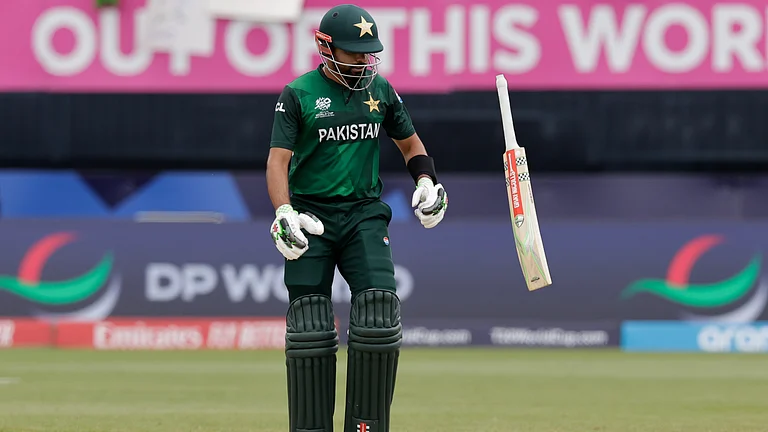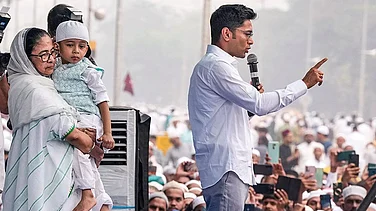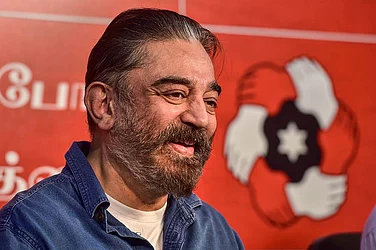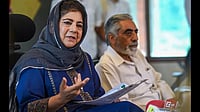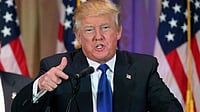The G20 foreign ministers' meeting on Thursday was unable to come out with a joint communique due to sharp rift between the West and Russia over the Ukraine conflict despite efforts by host India to bridge the differences.
The meeting, held under India's presidency, adopted a Chair's Summary and Outcome Document listing various key priorities for the grouping.
What did EAM Jaishankar say?
External Affairs Minister S Jaishankar said there were differences over the Ukraine conflict because of which the meeting could not agree on the joint communique.
"If we had perfect meetings of minds on all issues and captured it fully, it would have been collective statement but there were issues on which there were divergences," he said replying to a question.
He said that there were differences on the Ukraine issue which could not be reconciled.
Several diplomats said there were deep divisions between the US-led West and the Russia-China combine over the Ukraine conflict.
Jaishankar said there were "polarised views" on the issue.
The external affairs minister said the Outcome Document and the Chair's Summary reflected the G20's resolve to deal with pressing global challenges.
There were large number of issues where there was agreement, he said.
The Chair's Summary and Outcome Document
The Chair's Summary and Outcome Document mentioned two paragraphs on the Ukraine conflict but the footnote said all countries agreed to them except Russia and China. The two paragraphs were taken from G20's Bali declaration.
"It is essential to uphold international law and the multilateral system that safeguards peace and stability. This includes defending all the purposes and principles enshrined in the Charter of the United Nations and adhering to international humanitarian law, including the protection of civilians and infrastructure in armed conflicts," according to one of the two paragraphs.
It said the "use or threat of use of nuclear weapons is inadmissible. The peaceful resolution of conflicts, efforts to address crises, as well as diplomacy and dialogue, are vital. Today's era must not be of war."
Jaishankar said the G20 foreign ministers' meeting unequivocally condemned terrorism.
The Chair's Summary and Outcome Document said the meeting was deeply concerned by the challenges to global food security exacerbated by current conflicts and tensions.
"Promoting the availability, accessibility, affordability, sustainability, equity and transparent flow of food and agricultural products including fertilizers in all corners of the globe, to fight hunger and malnutrition, is the need of the hour," it said.
It said supply chains of both food and agricultural products including fertilizers should be kept reliable, open and transparent.
G20 Foreign Ministers' Meeting
The foreign ministers from the world's largest industrialised and developing nations held crucial deliberations on key global challenges that took place in the backdrop of the increasingly bitter rift between the US-led West and the Russia-China combine over the Ukraine conflict.
In a video message at the start of the meeting, Prime Minister Narendra Modi called for building consensus on pressing global challenges and not allowing differences on geopolitical tensions to affect overall cooperation in the grouping.
Modi also invoked Mahatma Gandhi and Buddha to urge the delegates to draw inspiration from India's civilizational ethos and "focus not on what divides us, but on what unites us".
"As you meet in the land of Gandhi and the Buddha, I pray that you will draw inspiration from India's civilizational ethos - to focus not on what divides us, but on what unites us," Modi said.
In their remarks, German Foreign Minister Annalena Baerbock, British Foreign Secretary James Cleverly and European Union's High Representative for Foreign Affairs Josep Borrell criticized Russia for its invasion of Ukraine while China's Qin Gang referred to the 12-point Chinese peace plan to resolve the conflict.
The G20 or Group of 20 is an intergovernmental forum of the world's major developed and developing economies.
The members represent around 85 per cent of the global GDP, over 75 per cent of the global trade, and about two-thirds of the world population.
The grouping comprises Argentina, Australia, Brazil, Canada, China, France, Germany, India, Indonesia, Italy, Japan, the Republic of Korea, Mexico, Russia, Saudi Arabia, South Africa, Turkey, the UK, the US and the European Union (EU).
(With PTI Inputs)





